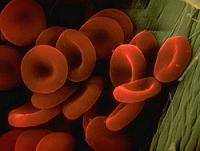Advertisment
ACC 2013 Report – Extended dual antiplatelet therapy don’t improve outcomes

Extra-extended dual antiplatelet therapy after placement of a drug-eluting stent won’t improve outcomes, Korean researchers affirmed in the DES-LATE trial.
The risk of cardiac death, MI, or stroke was the same whether patients stayed on aspirin plus clopidogrel (Plavix) for at least 36 months or shifted to aspirin alone after 12 months, Cheol Whan Lee, MD, of Asan Medical Center in Seoul, South Korea, and colleagues found.
No other individual endpoint significantly favoured longer dual treatment either, although there did appear to be higher major bleeding risk, they reported here at the American College of Cardiology meeting.
These open-label findings need to be pooled with those of other trials on dual antiplatelet therapy duration, such as the symptomatic heart disease subgroup of CHARISMA, session co-moderator Peter Berger, MD, of the Geisinger Health System in Danville, Penn., cautioned in an interview.
Guidelines recommend dual antiplatelet therapy for at least 6 to 12 months after a drug-eluting stent procedure, except for those at high risk for bleeding.
“However, these recommendations are largely based on registry data, and the optimal duration of dual antiplatelet therapy remains poorly defined,” Lee told attendees at the clinical research session.
His group had previously reported a non-significant trend for more all-cause and cardiac deaths, MI, or stroke with more than 12 months of dual antiplatelet therapy in pooled analysis of the REAL-LATE and ZEST-LATE trials.
To clarify whether there really was a difference, their multicenter DES-LATE study included 5,045 patients who got dual antiplatelet therapy for 12 months after drug-eluting stent implantation and didn’t have any major adverse cardiovascular events or major bleeding during that period.
Participants were randomized open-label to a further 12 months of aspirin plus clopidogrel or aspirin alone.
More than 95% of both groups stayed on aspirin through the full 24 months after randomization; nearly 80% in the dual antiplatelet group stayed on clopidogrel that long as well.
For the primary endpoint, the composite of death from cardiac causes, MI, or stroke came out with a rate of 2.6% with extended dual antiplatelet therapy compared with 2.4% in the aspirin-only group at 24 months after randomization.
The 6% relative difference wasn’t significant (P=0.75). Results were similar across subgroups.
Nor was there an advantage to a longer duration of clopidogrel for the composite of cardiac death or MI (hazard ratio for aspirin alone 0.96, P=0.86), all-cause mortality (HR 0.71, P=0.12), or definite stent thrombosis (HR 1.59, P=0.34). Major bleeding didn’t differ between groups at 24 months’ follow-up in the trial but did over the entire follow-up period out to a median 42 months.
At that point, the rate was 3.9% with extended dual antiplatelet therapy versus 2.5% in the aspirin group for a hazard ratio of 0.67, which did meet statistical significance at P=0.026.
Berger pointed to the open-label design as a limitation of the trial along with questions about generalisability from the population studied.
The researchers mentioned “It is important to remember that there are genetic differences between Koreans and Caucasians and other races and some of those are known to affect the risk of thrombosis, and the risk of bleeding.”
The researchers reported having no conflicts of interest to disclose.
Berger reported receiving fees or honoraria from Janssen, Medicure, BMS/Sanofi, and Eli Lilly/Daiichi-Sankyo and grant funds from The Medicines Company, Haemoscope, AstraZeneca, BMS/Sanofi, Novartis, Tethys, Accumetrics, Thrombovision, and Helena.
Reference:
Park S-J, et al “Optimal duration of dual antiplatelet therapy after drug-eluting stent implantation” ACC 2013; Abstract 751-755.





